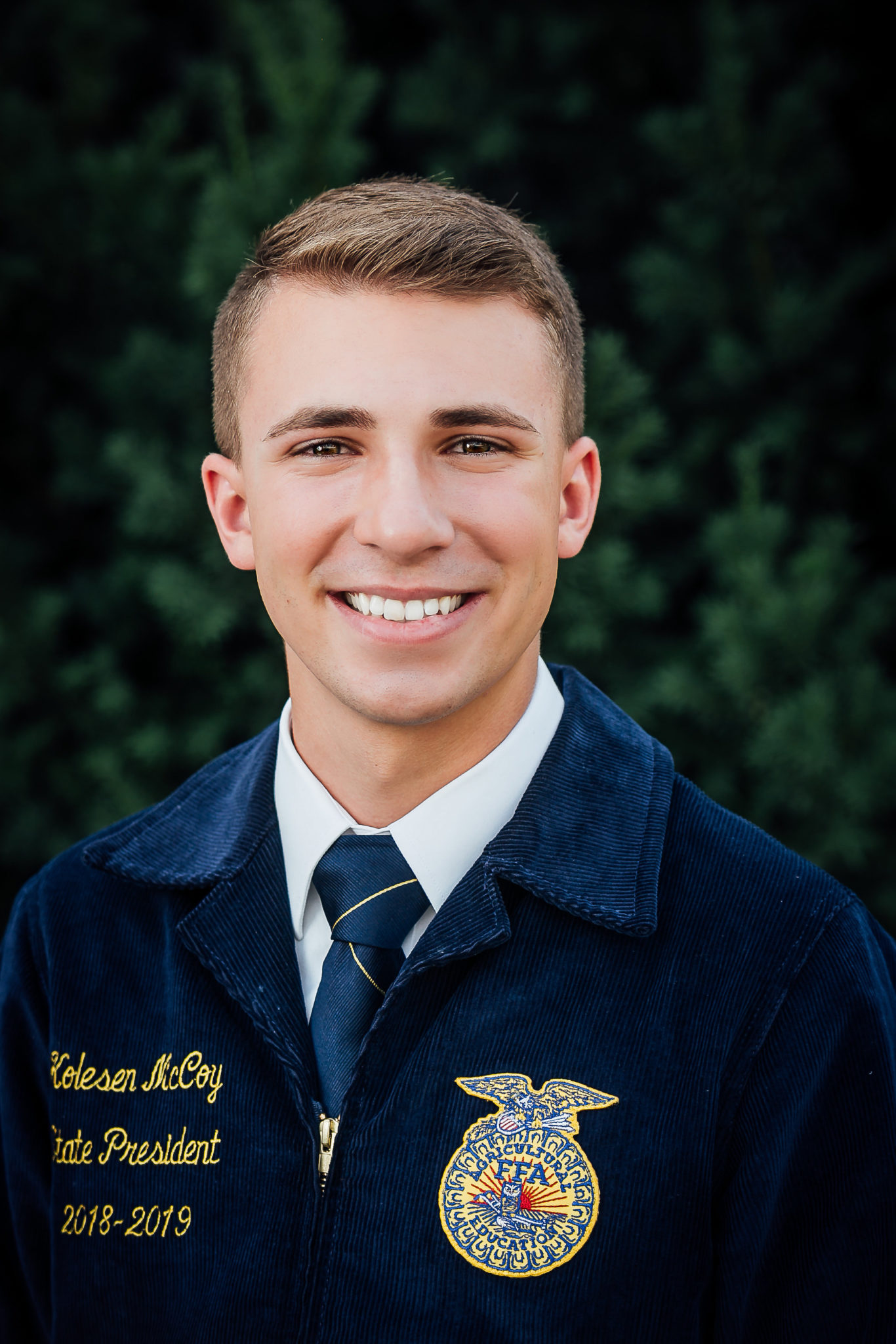Photo credit: Official White House Photo by Shealah Craighead
Kolesen McCoy, a recent graduate of Global Impact STEM Academy, attended the Rethink CTE Summit with academy Founding Director Josh Jennings. On Tuesday, we published Josh’s take on the summit and the presentation he shared there at the invitation of the U.S. Department of Education.
Today, Kolesen talks with us about his role at the summit, plus shares information about his background and his current position as State President of the Ohio FFA Association:
Q: Tell us about yourself and your family, and your academic and extracurricular interests.

A: I was born on Wright-Patterson Air force Base near Dayton, Ohio, to a military family who soon moved to nearby Springfield, Ohio, where I would grow up. I had no prior background in agriculture or career tech before enrolling at Global Impact STEM Academy in Springfield.
Since then, I have been associated with numerous ag-focused organizations including the World Food Prize, Columbus Council on World Affairs, Ohio Farm Bureau and FFA.
Following graduation from Global in 2018, I have taken a gap year to better serve the Ohio FFA and its nearly 26,000 members. I then plan to return to the Ohio State University in fall 2019 where I will major in agribusiness and applied economics with a minor in political science.
Q: How did you become state FFA president, and what are your responsibilities in that role?
A: FFA is a youth-led organization focused on making a positive difference in the lives of students by developing their potential for premier leadership, personal growth and career success through agricultural education.
I was elected to serve as the state president for the Ohio FFA Association starting in May 2018. In my position, where I encourage the professional and personal development of 10 other state officers, I also have other responsibilities that include holding chapter workshops, giving speeches, conducting fall/summer camps and advocating for career tech at the state and federal levels. My teammates and I also serve as delegates to the National FFA Convention.
The state convention becomes a priority as we roll into the new year, and I will prepare to attend chapter meetings, activities and banquets. As the convention nears, my team will write scripts, finalize committee work and practice for the event.
Throughout this year, I intend to share my passion for the FFA and learn more about the distinct impact that STEM in agriculture and career technical education can have on the community.
Q: Why did you attend the Rethink CTE Summit, and what was your role there?
A: The opportunity to attend presented itself about a month prior to the December 2018 event, and I saw it as a unique chance to share my experience in CTE along with representing my particular career tech student organization (FFA) on a federal level.
I served as a table facilitator to encourage discussion among industry representatives, legislators and educators from across the country. I also sat on a panel alongside representatives of four other student organizations — Business Professionals of America, HOSA-Future Health Professionals, SkillsUSA and TSA-Technology Student Association — where I was asked to share my experience at an early college Career Technical school focused on incorporating ag-bioscience into STEM curriculum.
Q: How would you improve CTE and/or STEM curricula in schools? How has this emphasis at your school benefited you and your classmates?
A: I believe that education in STEM/career tech is on a spectrum. On one end, you find the education to be very specific, tailored to one career, where a student earns certifications through courses restricted to that one pathway. On the other end of the spectrum, you find a very loose definition of what STEM and career tech look like.
During my travels throughout the state, I found that much of the career tech/STEM education falls at either end of the spectrum.
I am strong believer in finding a middle ground on this spectrum that is beneficial to all students. The course work should be specific enough to offer direction and give students an opportunity to excel in what they want to pursue. However, the curriculum also must be generalized enough to fit the needs of students unsure about what path is right for them, so they can still gain soft and hard skills beneficial to any professional career.
Q: How will you use your education at Global Impact as you go forward?
A: Global Impact gave me the freedom to explore and excel in what I enjoyed doing. Not only did it give me a chance to gain early college level experience and credit, but it also has given me direction in my chosen career of agriculture. This has stayed with me, as many of the real life skills that I now possess came to me from the experiences I had both in and out of the classroom.